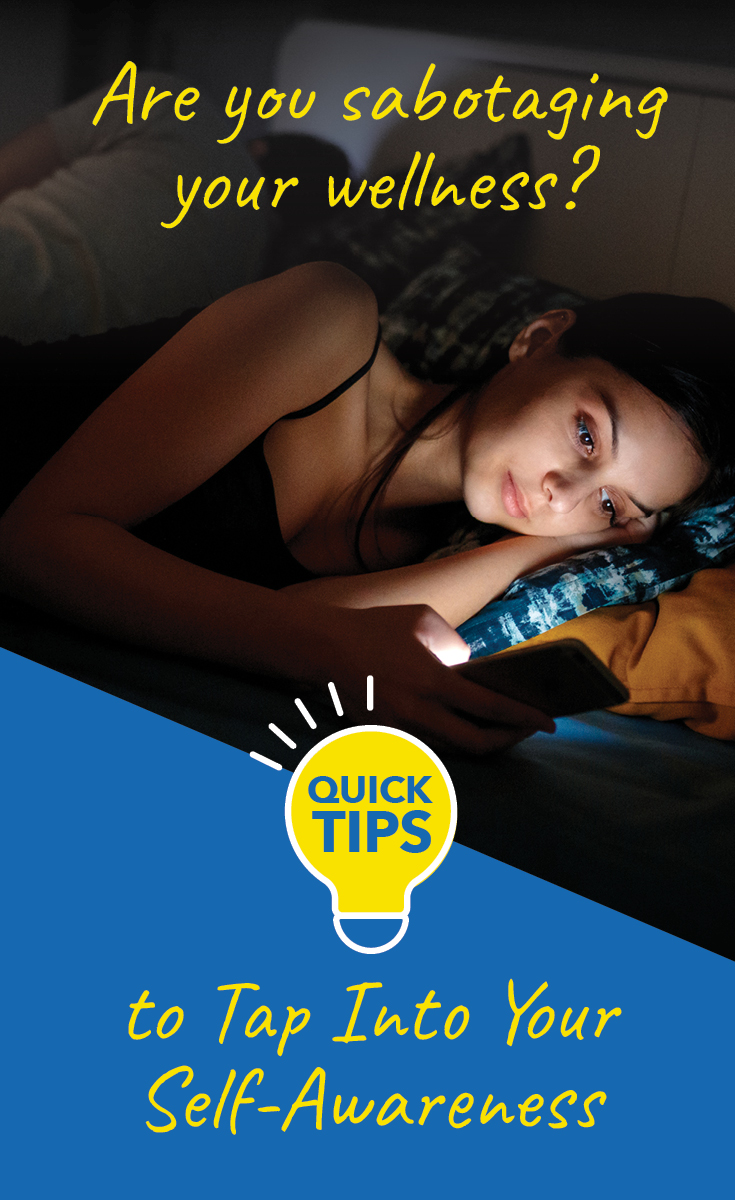Expert Advice

Acella Pharmaceuticals, LLC., is partnering with Helene Zahn-Chilberg, MA, LPMHC, LCAS-A to bring greater awareness to the importance of thyroid care and education. This post was sponsored by Acella Pharmaceuticals and should not be construed as medical advice. Please talk to your doctor about your individual medical situation.
In this post, we will explore how to tap into self-awareness in your daily routines and form positive, healthy habits to support your overall wellness. But before we jump in, I have a request. I ask that you approach this topic from a place of compassion and kindness toward yourself. If you can view this journey as an exploration of the areas of life where you can continue to grow, as a communion and relationship with yourself versus an additional source to judge how you are letting yourself down, you will be taking the first step toward healthier habits. When you notice a place where you can expand your awareness of your growing edge, I encourage you to use that moment for self-reflection and pivot into more kindness and caring for what you and your body require for greater health.
Often, we just go through the motions, day in and day out. We may find ourselves on autopilot, working through a to-do list. But with a lack of self-awareness, you may be vulnerable to harmful habits that are sabotaging your overall wellness.
Let’s start with some places where it’s easy to fall into unhealthy habits and it takes a willingness to choose a behavior that will create change.
Self-judgement and criticism.
Pause for a moment and notice how often your self-talk is critical and negative. Have you fallen into the habit of being your own worst enemy and a bully? Have you fallen for the lie that judging yourself is a way to create positive change? Has that ever worked?
Breaking this habit can require you to confront how harmful these thoughts really are. It takes the willingness to choose something else. Instead, when you catch yourself being unkind, imagine seeing a stop sign and telling yourself the following phrase: “Stop! That is the old me. Now I am choosing to believe that I am _____." (capable, kind, smart, curious, learning, etc.) Be willing to practice this until you are consistently choosing greater kindness toward yourself. Be intentional about breaking the cycle of treating yourself harshly.
Mindless scrolling.
It is very easy to fall into the black hole of scrolling. Whether you spend time on social media or news websites or watching TikTok videos, it is important to remember that these internet sites are endless, and it's easy to waste time scrolling. Spending excessive time on the internet can take up time that can be used more productively. It can also create unnecessary stress when you realize that you have now created a time crunch in your work, school or home life. I encourage you to set a timer and limit the periods you allow yourself to just scroll.
Watching too much TV.
This is not so different from scrolling. With today’s technology and easy access to whole series and movies, it's very easy to pass hours doing nothing but binging TV. It can be another way to numb yourself and lose track of time. Though entertainment can be a way to relax, too much screen time can cause physical aches and pains. It can also cause you to miss opportunities for activity and social connection and increase feelings of lethargy and depression. Limiting TV time and spending your time with others, social outings, or physical activities is a great way to create balance.
Eating when you are not hungry.
It is common for people who work on computers or watch TV for extended periods to report eating when they aren’t hungry. It is common in my practice for clients to tell me that they often overeat and snack when watching TV, mainly because they are distracted and don’t notice how much they are consuming. I recommend that people eat at a table and not in front of the TV. If you wish to have a snack while watching a show, consider scooping out a serving size into a container. It is a gentle reminder not to overeat.
Staying up late.
Making sleep a priority is one of the most common areas where I encourage individuals to make a shift in their daily lives. Consistent lack of sleep can create everything from mental fatigue and exhaustion to increased stress and physical illness. Lack of sleep can wreak havoc with your emotional and physical health, and cannot be stressed enough. Is your mindless scrolling or excess TV time cutting into your sleep schedule? Getting more sleep is an area where people can make dynamic changes that lead to a marked improvement in their well-being.
I encourage you to be honest about these daily habits and to begin to make consistent shifts to improve them. You might be surprised at how small, consistent changes can make a difference in your daily outlook and help create a positive mindset. Be willing to notice when you have fallen into unhealthy habits and choose one area at a time to change. As you gain comfort with one new change, you will gain momentum in your target of greater self-awareness and healthier living.
Be kind and give yourself time to establish new habits that increase your well-being and remember to include more kindness and caring toward yourself. Here's to the creation of your greater health and happiness!

Note that DTE products, including NP Thyroid®, have not been reviewed by the FDA for safety or efficacy.
IMPORTANT RISK INFORMATION, INCLUDING BOXED WARNING & INDICATIONS
Important Risk Information
Drugs with thyroid hormone activity, alone or together with other therapeutic agents, have been used for the treatment of obesity. In euthyroid patients, doses within the range of daily hormonal requirements are ineffective for weight reduction. Larger doses may produce serious or even life-threatening manifestations of toxicity, particularly when given in association with sympathomimetic amines such as those used for their anorectic effects.
- NP Thyroid® is contraindicated in patients with uncorrected adrenal insufficiency, untreated thyrotoxicosis, and hypersensitivity to any component of the product.
- In the elderly and in patients with cardiovascular disease, NP Thyroid® should be used with greater caution than younger patients or those without cardiovascular disease.
- Use of NP Thyroid® in patients with diabetes mellitus or adrenal cortical insufficiency may worsen the intensity of their symptoms.
- The therapy of myxedema coma requires simultaneous administration of glucocorticoids.
- Concomitant use of NP Thyroid® with oral anticoagulants alters the sensitivity of oral anticoagulants. Prothrombin time should be closely monitored in thyroid-treated patients on oral anticoagulants.
- In infants, excessive doses of NP Thyroid® may produce craniosynostosis.
- Partial loss of hair may be experienced by children in the first few months of therapy but is usually transient.
- Adverse reactions associated with NP Thyroid® therapy are primarily those of hyperthyroidism due to therapeutic overdosage.
- Many drugs and some laboratory tests may alter the therapeutic response to NP Thyroid ®. In addition, thyroid hormones and thyroid status have varied effects on the pharmacokinetics and actions of other drugs. Administer at least 4 hours before or after drugs that are known to interfere with absorption. Evaluate the need for dose adjustments when regularly administering within one hour of certain foods that may affect absorption.
- NP Thyroid® should not be discontinued during pregnancy, and hypothyroidism diagnosed during pregnancy should be promptly treated.
Indications
NP Thyroid® (thyroid tablets, USP) is a prescription medicine that is used to treat a condition called hypothyroidism from any cause, except for cases of temporary hypothyroidism, which is usually associated with an inflammation of the thyroid (thyroiditis). It is meant to replace or supplement a hormone that is usually made by your thyroid gland.
NP Thyroid® is also used in the treatment and prevention of normal functioning thyroid goiters, such as thyroid nodules, Hashimoto’s thyroiditis, multinodular goiter, and in the management of thyroid cancer.
Revised
10/2023
You Are About To Leave This Website
By clicking continue, this link will take you to a website to which Alora Pharmaceuticals’ Policies & Terms of Use do not apply.
